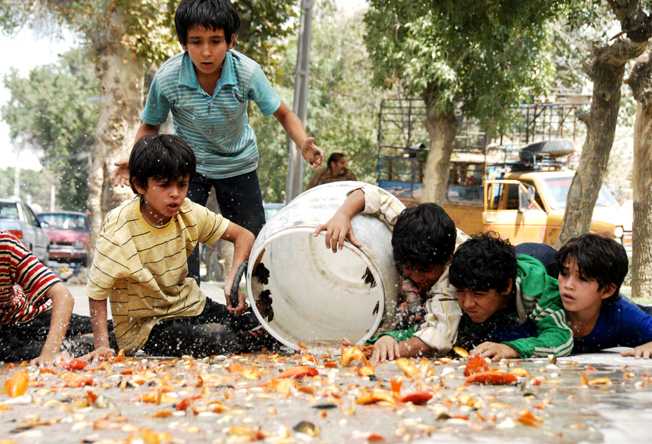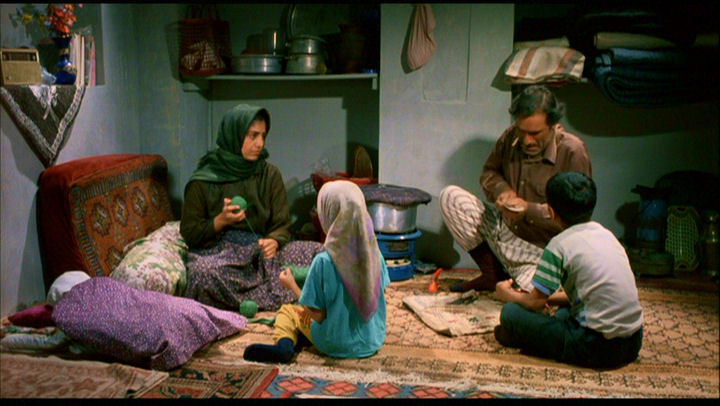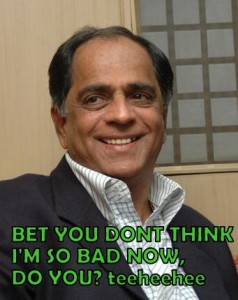Expression knows no bounds. And cinema is a form of expression.
The year that passed witnessed the tumult of censorship in abundance- in films and elsewhere. These triggered a barrage of criticism and prior norms were reinstated.

Barring the reprobative reputation that Indian media bears, they admittedly manage to bring every Indian’s voice to the fore. Yes, we are dabbling in political, social flurry but were dabbling in all the right places, hankering for a change and I’m affirmative that we as nation will get there.
Now how about nations whose environment is far from conducive? How does their art and expression come to the fore?
Film makers in Iran have to face immense censorship over the subjects they broach in their cinema. So that they do not earn the stringent government’s ire, they use children as a narrative tool for the socio-political assertions on their strict regime. An Iranian film maker named Jafar Panahi was jailed for a term of 20 years because of a movie he made amounted to inciting hate against the government! Someone once said, ‘Don’t show me the problem, give me the solution.’ Even in the midst of this excessive restraint on expression, stems out wonderful cinema, by people like Majid Majidi who’s protagonists essentially remain children. But upon expounding on the story, on subliminal levels one hears the silent sound of sharp satire.

Cinema in North Korea- much like everything else there, is tailored, transfigured and then delivered. It is fashioned to feed the egos of their leaders. Since early times, the industry received patronage from Kim Jong-il. But (this gets amusing now) A film maker from South Korea was abducted by him to make movies in the North, only films dealing with subjects that eulogise their leaders are released. Strong, hard working women who sacrifice everything for their leaders- is a favourite subject.
Movie theatres in Saudi Arabia were banned back in the 1980s.(The first ever movie theatre construction was approved in December 2015) So since the time of its creation, this nation has no film culture or development to speak of. Upon reading upon its film history, I came to realise that there is just one film that has been made/cast/produced entirely in Saudi Arabia until now- A movie called ‘Wadjda.’ The protagonist of this film is a young girl who partakes in a Quran reading competition to earn money for a bicycle- leaving her teachers scandalized and her mother furious. “You won’t be able to have children, if you ride a bike”, the child is told.
Made in 2012, it was also Saudi Arabia’s entry for the Academy Awards. Incidentally, this movie was made by the nation’s only female film maker – Haifaa Al Mansour. In an interview with the CNN, Mansour also said that she received several death threats due to this. She wants her movie to direct toward a social change and inspire more women to do so.
It is said, that when a culture is secure- it gives its artists the freedom to choose their subjects. But when it is not, the artists are censured for merely imitating life. This is how ‘modern art’ came to be developed. Artists used camouflage to conceal their subjects.
Repressive nations may threaten jail terms, bar art from culminating- but it has been interesting to note how something similar has translated to cinema around the world. Expression will find ways to leave behind remnants of the culture we host.
On a jocular note –

In case you do not know who this is (http://www.vagabomb.com/You-Want-to-Show-Everyone-How-You-Are-Doing-Sex-Pahlaj-Nihalani-Defends-James-Bond-Cuts/)
